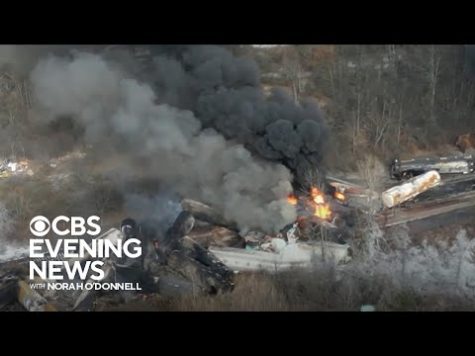
In early February, a train run by railroad company Norfolk Southern derailed in East Palestine, Ohio, near the border of Pennsylvania. The crash caused an environmental catastrophe. About 3,500 fish died in lakes nearby, flames caused plumes of smoke to reach the sky and chemicals the trains were carrying flew into the air. These chemicals have been reported by the Washington Post to be causing health problems to animals, livestock, and the people in the community — despite efforts to evacuate those closest to the accident.
Attacks on the government for being too unhurried to react have been made by both Democratic and Republican lawmakers. CBS News reports that it took two weeks for the Federal Emergency Management Agency (FEMA) to arrive on the scene and begin working to fix the hazard the accident caused. The Response by Norfolk Southern and the Environmental Protection Agency caused scrutiny within the community.
When looking at the facts, one would have to agree. The residents of East Palestine were promised free health clinics only when they had begun to complain of headaches, dizziness and nausea. The Environmental Protection Agency (EPA) spent the majority of its time assessing the damage caused and concluded that Norfolk Southern should be in charge of the clean-up. While some might feel relieved that justice is being served, others might regard this as a political move, transferring blame from one group to another rather than focusing on the real issue, the well-being of the community and the environment.
Looking at the federal and local response to the train derailment, it’s a confirmation that as a country we have not changed from Flint, Michigan and the Love Canal, an environmental utopia turned into a dumping ground for chemicals. Environmental activists and residents of these communities are exhausted from fighting to be heard as the federal government and large corporations point fingers at one another rather than act to combat the issue.









